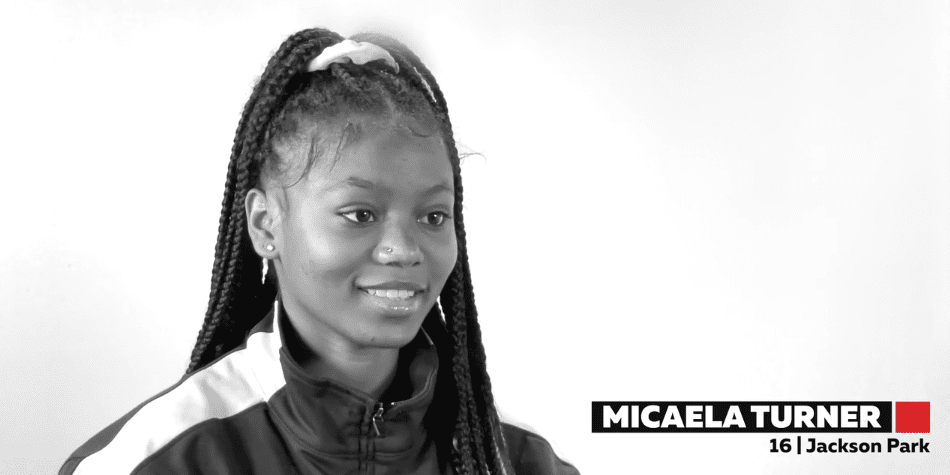The city of Chicago is home to over 1 million youth ages five to 24 — 69.3% of them identify as Black or Latine. Of those, more than 20% live at or below the poverty line. When politicians, advocates and other adult experts develop programs, they fall flat and fail to achieve the long-term social and economic change they’d hoped for. Is the solution as simple as listening to the wants and desires of youth using their own voices? How can we elevate and empower youth to help them solve their own sets of social issues? Will doing exactly what they tell us lead to systemic change?
When Chicago’s youth finally returned to their school buildings and reconnected with their peers after what seemed to them a lifetime, they came with a new understanding of the world in which they live. They had new stories to tell. Those stories were laden with calls to action for the adults who make decisions, drive policy and appropriate funding. My team and I listened to them, surrounded them with caring adults who helped them curate their stories and gave them a familiar tool to share what they learned and gained while the world was shut down — smartphones. What came forth were beautifully told narratives that were about them and, at the same time, about everyone.
What happened when we asked a group of high school students to tell their stories without any limitations, rules or guidelines? We were gifted with bright and insightful observations. We were reminded that what our youth are asking for is nothing less than what they deserve. We were invited to see their fragile humanity.
The last two years have been hard on us all. For those who already experience unbearable trauma and societal strains, the isolation and distress brought on by a global pandemic has only compounded the precarious lived realities of our young people and their families. Intensifying the negative narratives were the national and social media outlets with their claims of “learning loss,” widening achievement gaps and reports of destitute communities of color and poverty. While there is the need to investigate and act upon these real concerns, I also know our kids, our families and our communities. What I know is that young people are not only resilient in times of strife, but they are also resourceful, creative, empathetic and spiritual. Instances of hope, inspiration and generosity — a true sense that we are “all in this together” — is what they gained.
Watch the Shifting Chicago Narratives student videos here.
Watch the ABC News coverage here.
—
About the author
Zataya Shackelford-Walter is the Director of Youth Developme nt at Thrive Chicago. She relocated to Chicago from the California Bay Area to earn her master’s degree in Social and Cultural Foundations in Education from DePaul University in 2002. Since then, she’s been the founding member of two charter high schools and has served in multiple school and charter network leadership roles, including as principal of CICS ChicagoQuest High School. Zataya has more than 20 years of urban education experience and a passion for driving multigenerational change through education for the communities of Chicago.
nt at Thrive Chicago. She relocated to Chicago from the California Bay Area to earn her master’s degree in Social and Cultural Foundations in Education from DePaul University in 2002. Since then, she’s been the founding member of two charter high schools and has served in multiple school and charter network leadership roles, including as principal of CICS ChicagoQuest High School. Zataya has more than 20 years of urban education experience and a passion for driving multigenerational change through education for the communities of Chicago.





